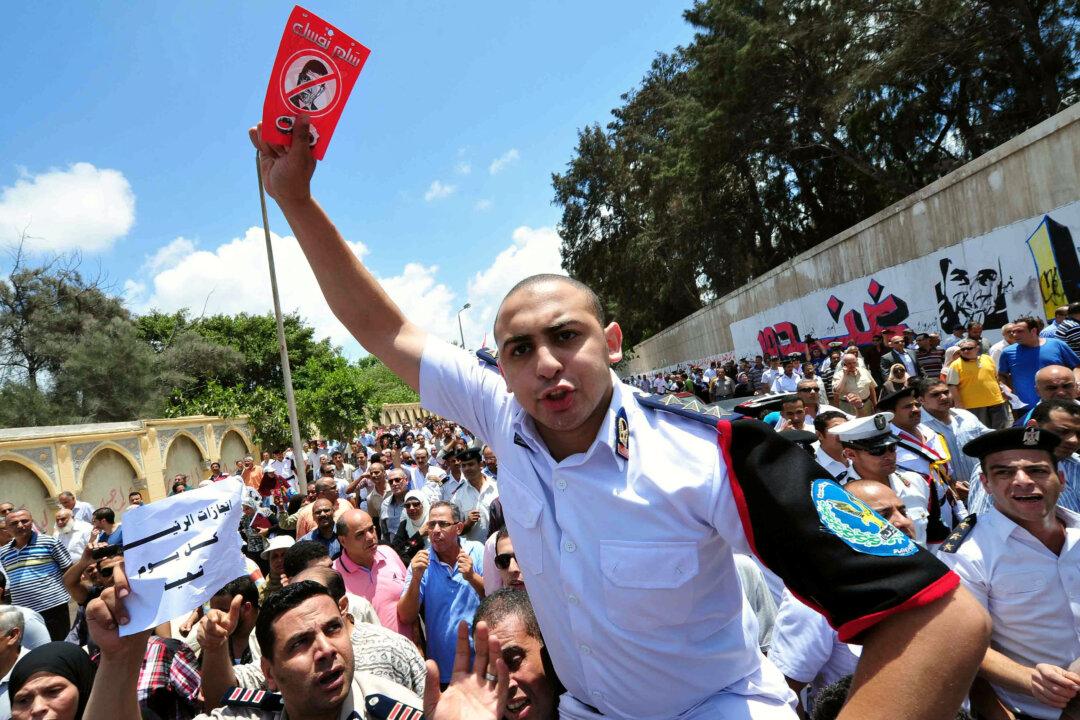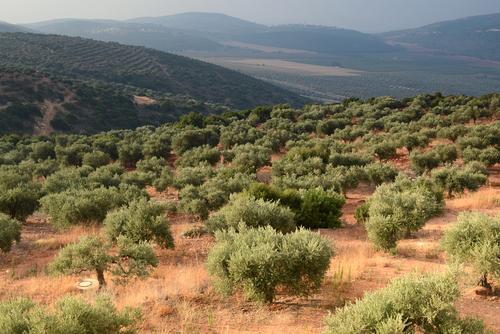TEL AVIV—Two Egyptian soldiers were killed at a checkpoint in the country’s Sinai peninsula Wednesday, highlighting the volatile situation in the region after the military took over power last week.
The Sinai peninsula, which borders both Gaza and Israel, has become a flashpoint of violence after President Mohammed Morsi was ousted as by the country’s military last week. Last Friday, five Egyptian soldiers were killed by attacks in the region, with one more killed Sunday.
Israeli authorities are increasingly worried about the possibility of attacks from the Sinai peninsula or infiltrations by terrorists into Israel. Last Thursday, rockets were fired from Sinai into the Southern Israeli city of Eilat. Responsibility for the attacks was claimed by the extremist faction Ansar Bayt al-Maqdes.
Ansar Bayt al-Maqdes is made up of mostly local Bedouins, an Arab ethnic group, but also recruits from other parts of Egypt and other Arab countries, according to the Times of Israel. The Sinai Peninsula is predominately home to Bedouin tribes.
While the Egyptian army reportedly launched an offensive against the extremist groups in Sinai in recent days, it won’t be the top priority of the military as it’s struggling to find a solution to the political crisis in the country as mass protests that have gripped the nation continue.
Article Continues after the discussion. Vote and comment
[tok id=d7590b23285f777a0242e9fe2ff3aec3 partner=1966]
Both Egypt and Israel see the level of, and rise of, extremist groups in the Sinai peninsula as a common threat, but Israeli authorities increasingly fear Egypt’s military might lose control in Sinai.
The already volatile peninsula, which has been a breeding ground for extremist thought in decades of neglect from authorities, has become increasingly unstable after Egypt’s Arab Spring revolution in 2011. Under ousted President Morsi’s rule, Egyptian forces were restricted in their operations in the region.
“During his year as President, Mohamed Morsi didn’t let the army act freely in Sinai against the Jihadist and the Bedouin tribes,” said Professor Elie Podeh at the department of Islamic and Middle Eastern Studies at the Hebrew University of Jerusalem. “It resulted in today’s chaos in Sinai.”
The number of Egyptian troops in Sinai is limited in number given the peace treaty signed with Israel.
“If Israel will allow more Egyptian military forces to enter Sinai it is possible to overcome the terrorist groups. It is a common interest of both Israel and the Egyptian Army,” Podeh said.
Podeh believes that, while at present there might be an increased risk in attacks from Sinai into Israel following the political crisis, in the long run he expects the Egyptian military to respond more effectively to the terror threat in Sinai than Morsi did.
In August 2011, eight Israelis were killed in a cross-border attack by a group entering from Sinai.
In response to the growing terror threat from the Sinai Peninsula, Israeli Prime Minister Benjamin Netanyahu said Sunday that, “the fence that was built to block illegal migration from Africa has now an additional function, namely counter-terrorism.” According to Netanyahu, the fence is equipped with very advanced means.
The Israeli Defense Forces are preparing to further adapt the fence on the border with Egypt.




